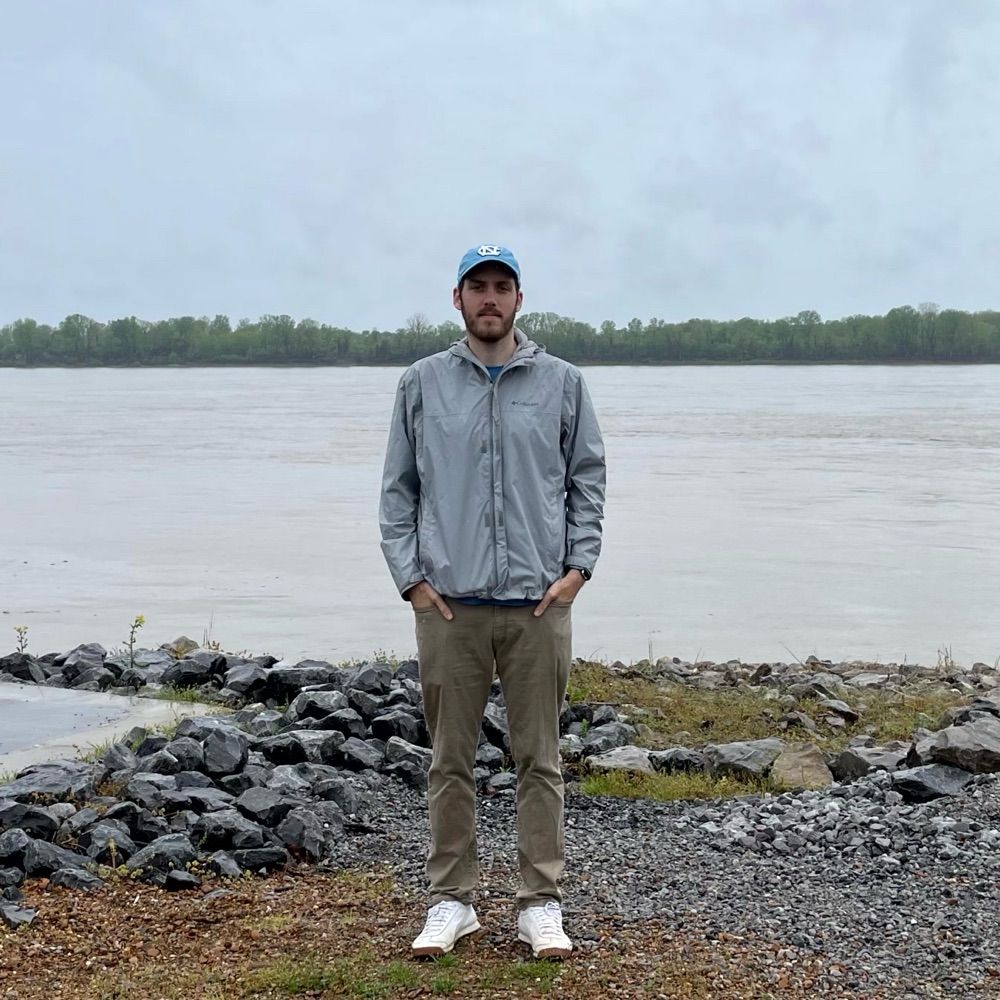Out in the North Atlantic lies a windswept, rocky archipelago called the Faroe Islands. A self-governing territory of Denmark, the Faroes consist of 18 islands, 54,000 people, 70,000 sheep, three million seabirds, and one disc golf course.
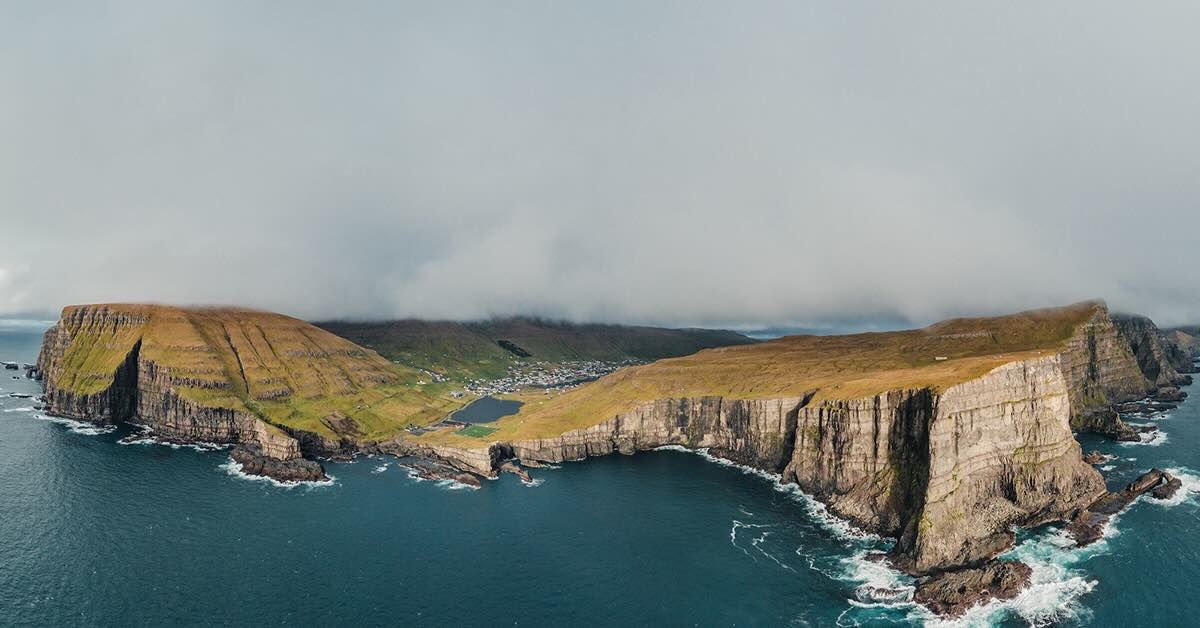
While historians are unsure how the Faroe Islands first came to be inhabited, we were able to dig up the story of how disc golf found its way there in the form of Disc Golf Vágur, a course installed in 2022.
Importing Disc Golf to Vágur, Faroe Islands
Faroe Islander Magnus Pauli West first found his love for disc golf in Aalborg, Denmark, where he spent six years attending university. During the pandemic, social distancing and travel restrictions led him to discover the sport – a common story from 2020.
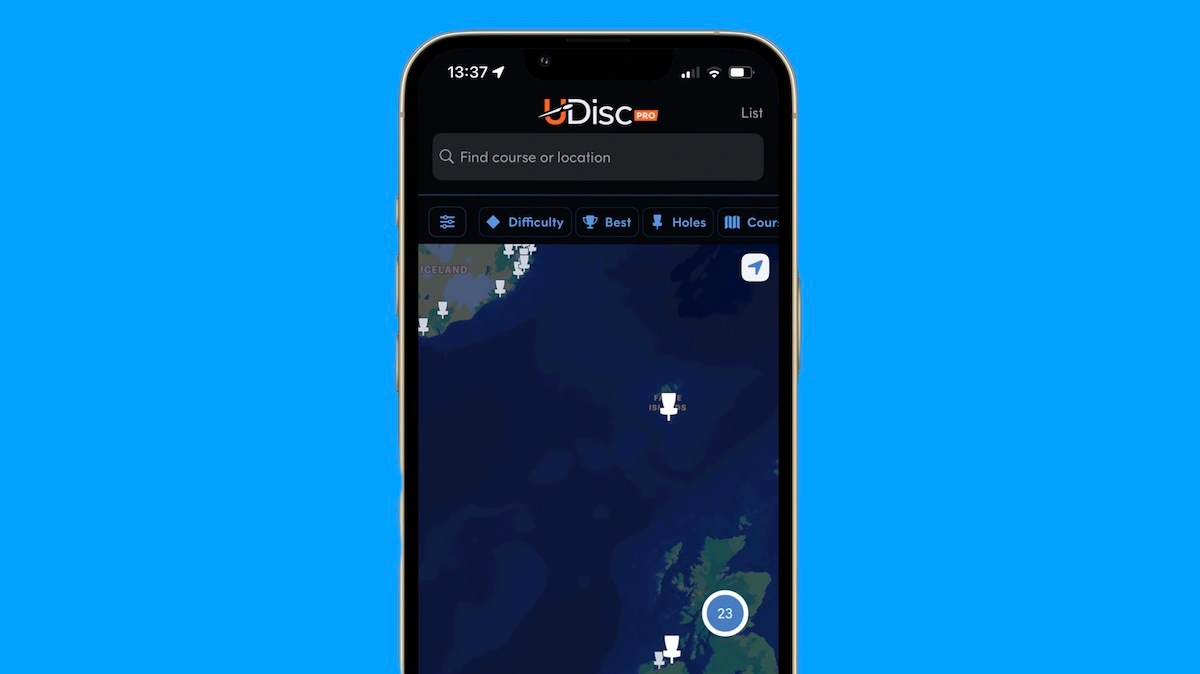
"There was a disc golf course in Aalborg, Bundgårdsparken, and I decided to buy some discs and try it," said West. "I fell in love and spent many hours of my remaining time in Aalborg playing disc golf before moving back home in relation to my job."
"Home" was the town of Vágur, where West currently works as the welfare manager and oversees the municipality's business, cultural, social, and leisure services. He brought his passion for disc golf with him and was keen on introducing a new sport to the community.
"I decided before I moved back to the Faroes that I would establish the first course on the islands," said West. "So I spent a lot of time looking at the disc golf course in Aalborg and online – among other things, watching disc golf tournaments on JomezPro's YouTube channel."
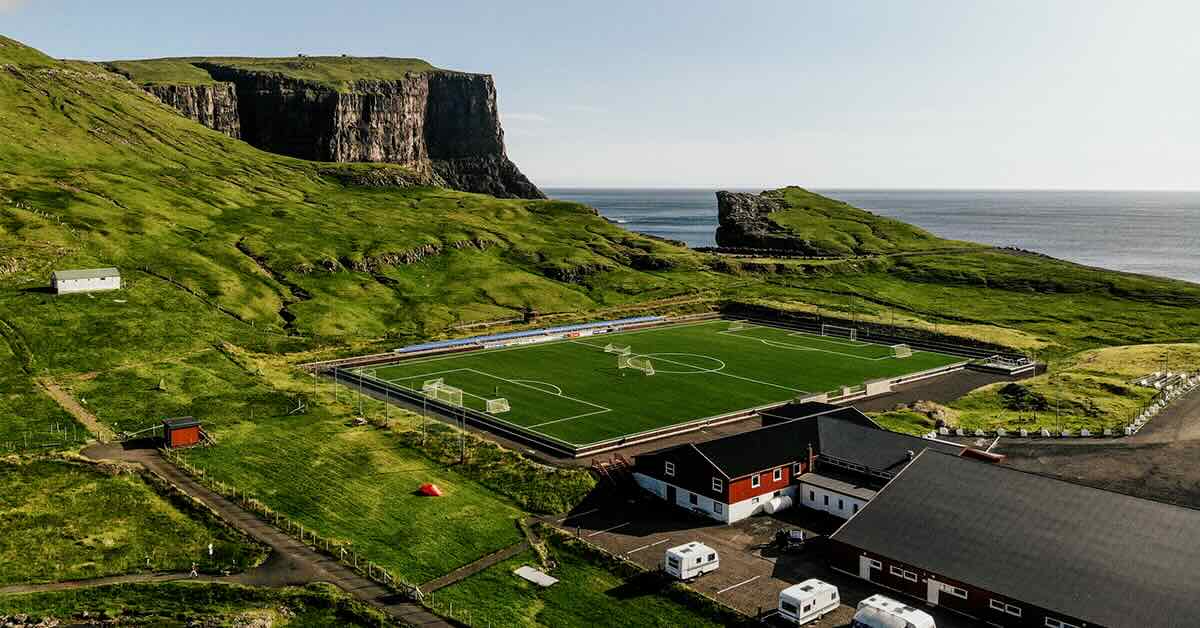
But when West began to design a course around the football pitch and Vágshøll Sports Hall in a scenic area called Vágseiðin, he didn't have a useful element most designers take for granted: Trees.
Because of their windswept and rocky geography, there are very few trees on the 540 square miles/1,400 square kilometers that make up the Faroe Islands. So West designed holes that utilized distance, prevailing wind directions, and elevation to make up for the absence of arboreal obstacles.
"Most disc golf courses are located in parks and forest areas, but this was not an option in Vágur," West explained. "So I was very aware of the rugged landscape and using the area's manmade and natural obstacles as there are no trees in the area – trees don't grow naturally in the Faroes – as well as the changing weather conditions."
He tucked portable baskets on cliff edges, outcrops, and hillsides with an eye towards appropriate challenge and scenic views and then tested possible tee positions and fairways to see if he could make fun, viable holes.
Over time, he brought along his wife and friends to try his layout and after receiving many rounds of both constructive notes and positive feedback, West felt it was time to make it official. He typed up a lengthy proposal for the municipality council, one prominent member of which was the mayor of Vágur, Bjarni Johansen.
Navigating Approval & Installation
As a former professional soccer goalkeeper, Bjarni Johansen is well aware of the importance of emphasizing local sport. Among his many other duties, he sees his position as an ambassador for the city and its sports and has helped usher in several new sports to the Faroe Islands.
"In 2021, archery was established in connection with the Faroese Games held in Vágur," said Johansen. "Today, the archery club is located in the Marghøll sports hall run by Vágur Municipality. In 2022, disc golf began, and in 2024, Suðuroy's judo club was founded in Vágur."
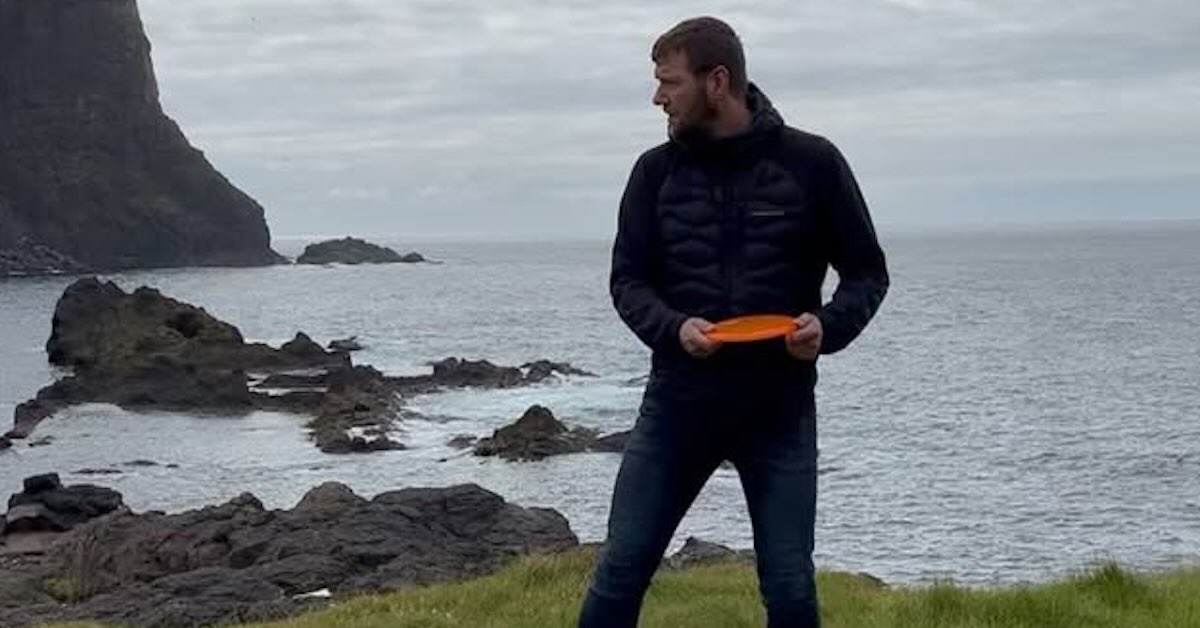
As Vágur is tightly-knit and West worked for the municipality, West approached the mayor directly to discuss his proposal.
"When Magnus Pauli first told me about disc golf, I had never heard of it before," said Johansen. "I thought it sounded exciting that he wanted to build an 18-hole disc golf course in Vágur. [He] explained that disc golf is one of the fastest-growing sports in the world. Because of that, the application was well received and approved by the municipal council."
Once West's proposal was approved, sourcing funds was the next step. Johansen would have welcomed help from the Danish government, but neither he nor West could find programs that would support building the sort of sports infrastructure they had in mind.
"Currently, there is no public funding available specifically for launching new sports initiatives," said Johansen. "I believe it should be a priority for national authorities to support sports like disc golf as they have minimal environmental impact — only requiring a few baskets in a suitable open area."
To encourage local businesses to add their support, West also contacted the Faroese Confederation of Sports & Olympic Committee, which granted him a letter of endorsement that helped him gain financial support from Faroese companies.
"Vágur Municipality supported the project, and so did several local businesses," said Johansen. "Two of the major banks also contributed their support."
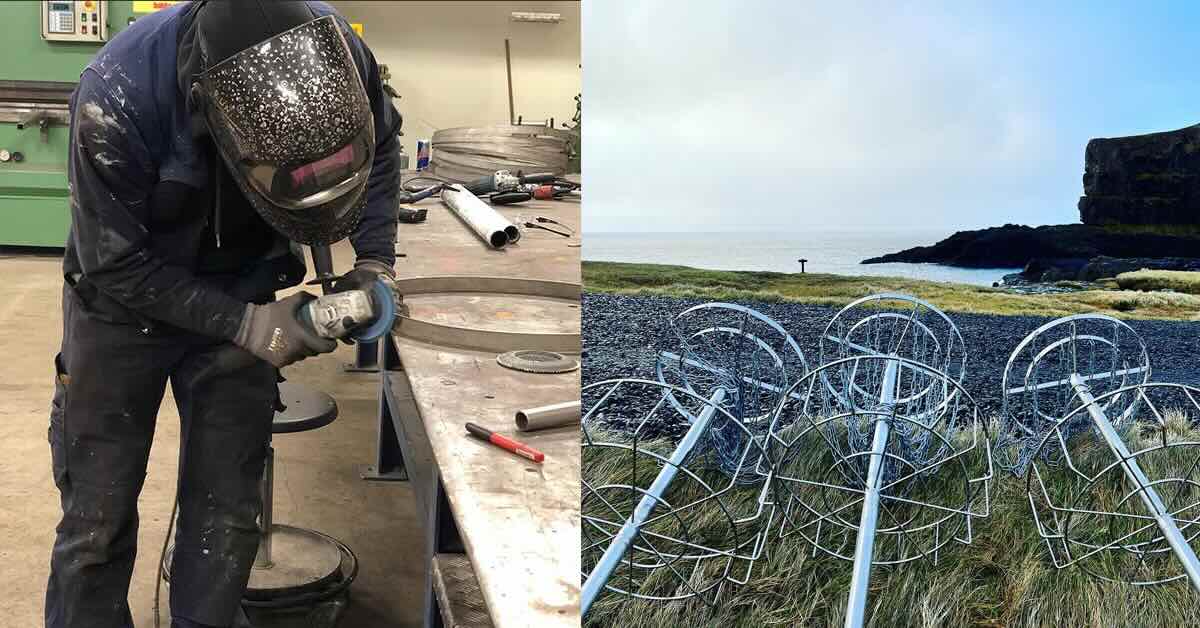
Because the municipality sponsors the local leisure associations and sports clubs, West also included a request for their skilled workers to help construct and install the course.
"The installation went very well and fast," West said. "I got help from the municipality's workforce to make foundations and I got a local company, Tangavirkið, to design and manufacture baskets."
Since the Faroe Islands are so remote, shipping 18 baskets across the ocean was less cost-effective than making them in-house. Tangavirkið, a local fabrication company, took on the task of creating baskets that could endure the strong winds and spindrift of the Atlantic Ocean. After 18 rounds of cutting, bending, welding, and grinding, Tangavirkið had made West hardy baskets ready for installation.
For signage, West worked with a local graphic designer to create hole maps and a full course map, the latter of which he mounted on a fittingly wind-battered and salt-eroded obelisk.
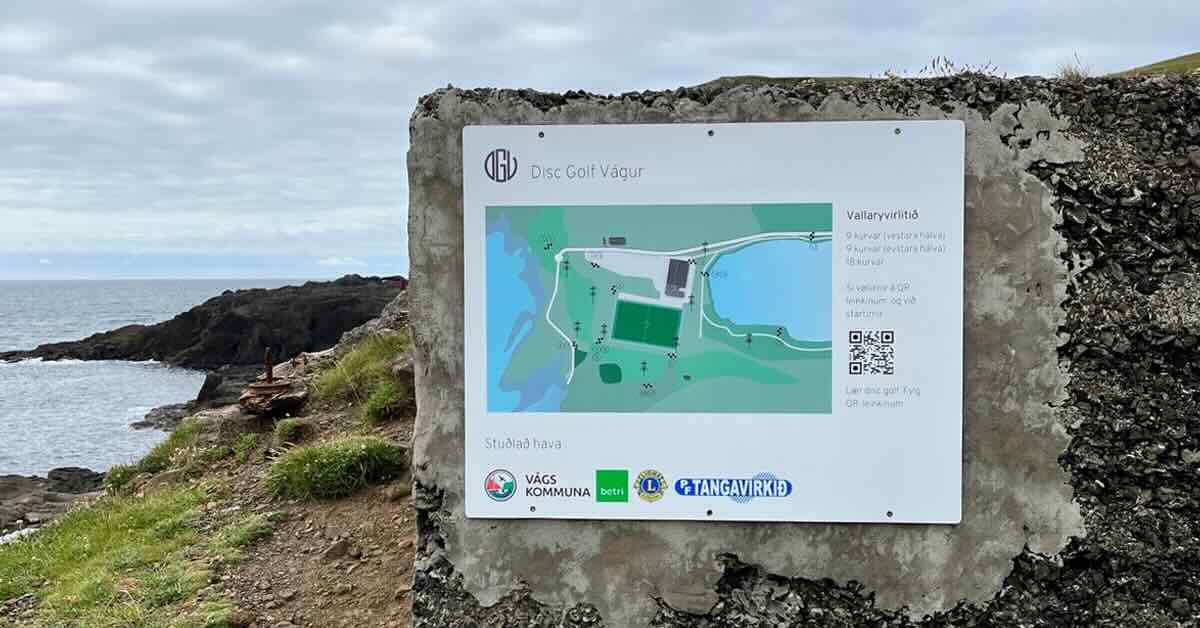
The course came together quickly, and Disc Golf Vágur was open to the public by August 2022.
Since its launch, West has seen enthusiasm for the course grow, both among Faroe Islanders and tourists. An entire football team, the local high school, and disc golfers from Scandinavia and across Europe have all made their way to the course. The success in Vágur has led to discussions about building courses in other parts of the Faroes.
"I haven't heard of any concrete plans," said West. "But there are people interested in making courses."
Playing Disc Golf in the Faroe Islands
If you're interested in trying out Disc Golf Vágur, the hardest part will be deciding how to get to it. There are flights to the Faroes from Denmark, Scotland, Norway, Iceland, and at some times of the year, Spain and France. Along with air travel, there are also ferries from Denmark that offer a more traditional passage – though you can expect a few days of rough North Atlantic seas on your journey.
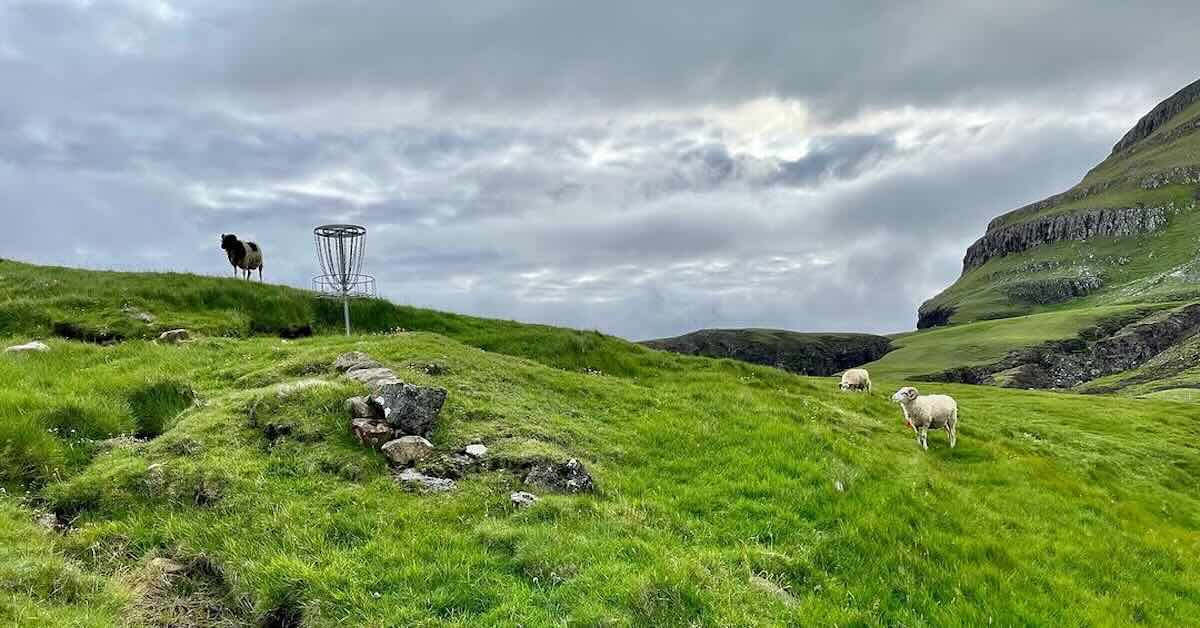
After you arrive in the Faroes, you'll likely need to take a two-hour ferry ride south from Torshavn, the capital, to the town of Tvøroyri. From there, it's a half-hour drive to Vágur.
But if you brave the many legs of the trip, your reward will be getting to play disc golf in one of the most stunning environments imaginable. Lush grass on rolling hills sways in the wind with a backdrop of basalt steppes that highlight the Faroes' volcanic past. The bases of upward-facing cliffs like Múlin and Skuvanes get constantly beaten by crashing waves. There are birds galore, from bright white fulmars to cartoonish puffins.
And the course itself? Expect a challenge.
The holes average about 340 feet/103 meters, and they can get very tricky thanks to the strong ocean winds. Despite the lack of trees, hitting your angles is vital as the sea breeze is quick to carry over- and under-turned discs far from their intended targets. Make sure to bag stable discs that can handle high winds and approach discs that are less prone to roll–aways.
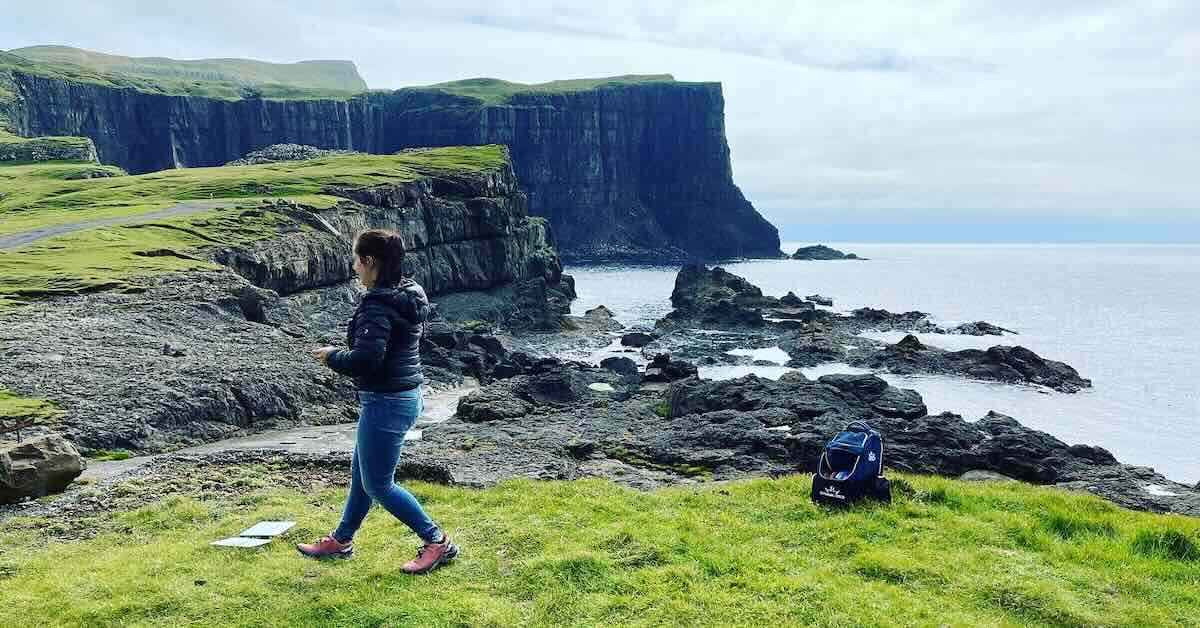
The elevation is a factor, too. You're in for the equivalent of seven floors of elevation change atop thick ground cover, so bring sturdy shoes. Warm clothes are an additioanl necessity as even the hottest summer days rarely see temperatures over 65° F/18° C before wind chill.
As for hazards, Lake Vatnið – in play on holes 10 through 14 – is the main one though an extremely errant overthrow on hole 18 could send your disc off a cliff and into a briny Atlantic grave. Faroese sheep also graze freely near the course and sometimes wander up in curiosity.
Being a subpolar oceanic climate, the islands do get quite frigid in the winter months and West closes the course and removes the baskets seasonally, typically between mid-October and Easter. But between April and October, the course is primed and ready to go. So for those intrepid disc golfers eager for a destination course, it's time to put Disc Golf Vágur near the top of your list.
Of course, disc golf would be just one of many recreation options on the Faroes. There are loads of attractions on the island to provide entertainment after a round. West's position as welfare manager of Vágur keeps him up-to-date on all the activities in Vágur and Suðuroy as a whole.
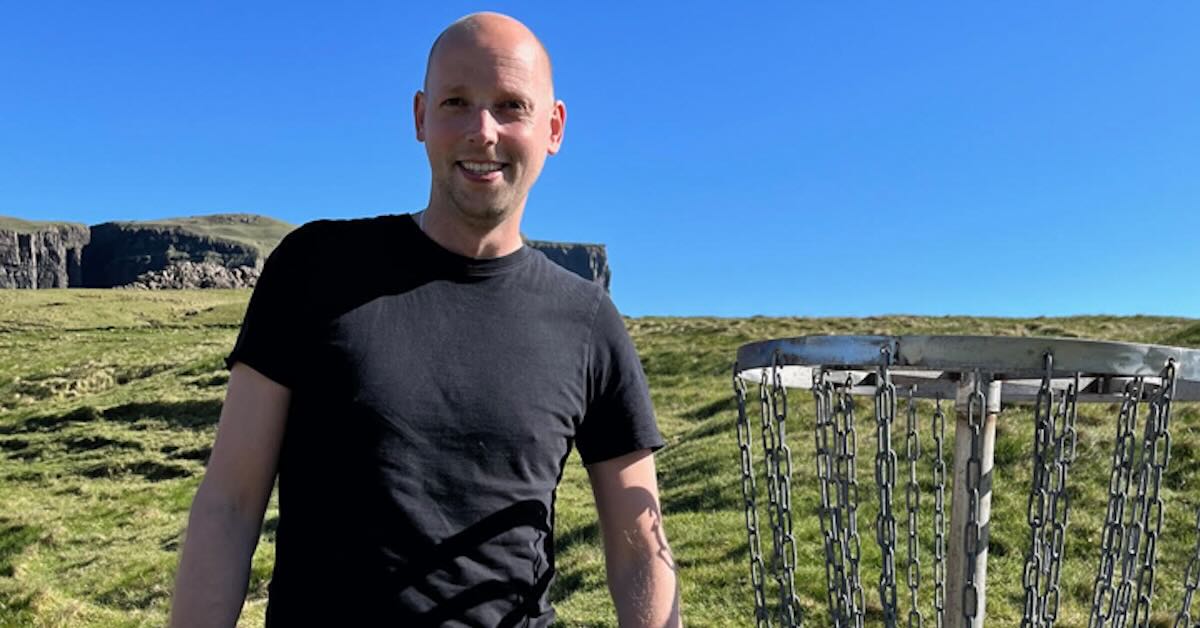
"Tourists can experience the beautiful Faroese nature, landscapes and attractions, museums, local hospitality, guided hikes, excursions, angling, various sports, music, and cultural events," said West.
Along with the many enjoyable activities, the people of the Faroes are just as inviting.
"The people of Vágur are known for their warmth and friendliness, and it's easy to connect with the community," said mayor Johansen. "I hope many disc golf enthusiasts will take the opportunity to visit Vágur and try out our course."
